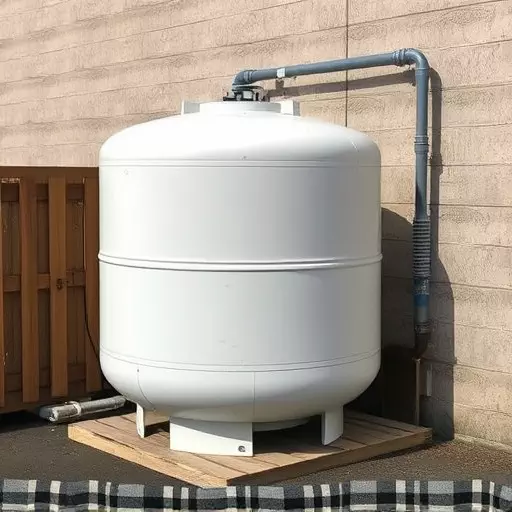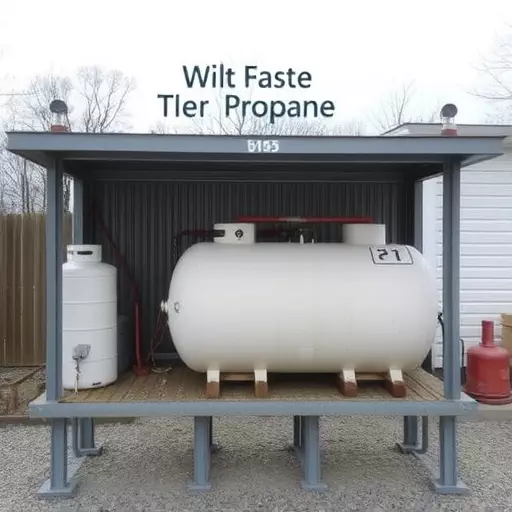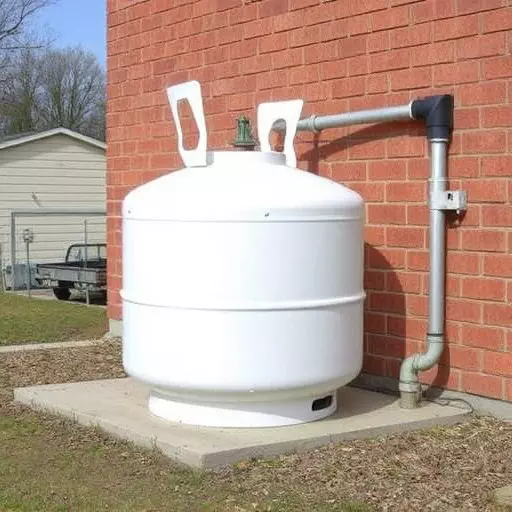Camden, New Jersey residents must prioritize safe propane tank storage by maintaining proper ventilation, avoiding sharp objects and ignition sources to prevent gas leaks, fires, and explosions. Regular inspections ensure adherence to fire codes and industry standards, enhancing overall safety for homes and communities. Key practices include keeping tanks away from damage, corrosion, and potential igniters while ensuring optimal airflow to mitigate flammable buildup.
In Camden, NJ, ensuring safe propane tank storage is paramount to prevent accidents and protect public safety. This article offers comprehensive insights into identifying sharp objects that could pose hazards around propane tanks, along with practical tips on implementing safe storage practices and proper ventilation. By adhering to these safe propane tank storage tips, residents can significantly reduce risks associated with propane tank exposure in Camden and beyond.
- Understanding Propane Tank Safety: A Camden, NJ Perspective
- Identifying Sharp Objects and Their Potential Hazards
- Implementing Safe Storage Practices for Propane Tanks
- Ensuring Adequate Ventilation: A Key Component of Propane Tank Security
Understanding Propane Tank Safety: A Camden, NJ Perspective

In Camden, New Jersey, understanding propane tank safety is paramount, especially with the widespread use of propane for heating and cooking. Safe propane tank storage tips are crucial to prevent accidents and ensure a secure environment. One of the primary concerns is protecting tanks from sharp objects that could cause damage or puncture the container. Sharp items like metal debris, tools, or even lawn equipment should be kept at a safe distance from propane tanks.
Proper ventilation for propane storage is another key guideline. Camden residents should ensure adequate airflow around propane tanks to prevent the buildup of flammable gases. This can be achieved through proper tank positioning and installation, allowing air to circulate freely. By following these propane tank storage safety guidelines, Camden folks can help minimize risks associated with propane use, ensuring a safer home environment.
Identifying Sharp Objects and Their Potential Hazards

In the pursuit of safe propane tank storage tips Camden New Jersey residents should be vigilant in identifying sharp objects that could pose potential hazards. Sharp objects range from broken glass to metal fragments and even small tools left unattended. These items can puncture or damage propane tanks, leading to leaks, fires, or explosions—all severe risks to personal safety and property. Regular inspections are crucial to spot such hazards, especially in areas where storage containers are accessible or near high-traffic zones.
Proper ventilation for propane storage is another critical aspect of maintaining safety. Propane is a flammable gas that requires adequate airflow to prevent the buildup of toxic or explosive concentrations. Ensure that storage areas have unobstructed vents and are well-ventilated, adhering to local fire codes and industry standards. By combining these safe propane tank storage tips with regular maintenance checks, Camden residents can significantly reduce risks associated with propane tanks, enhancing overall safety for their homes and communities.
Implementing Safe Storage Practices for Propane Tanks

Implementing Safe Storage Practices for Propane Tanks
When it comes to storing propane tanks in Camden, New Jersey or any location, prioritizing safety is paramount. Proper ventilation is a cornerstone of safe propane tank storage tips. Ensuring adequate airflow prevents the buildup of flammable vapors, reducing the risk of explosions and fires. This is crucial, especially in enclosed spaces where propane tanks are kept for extended periods.
Additionally, keeping propane tanks away from sharp objects and potential ignition sources is essential. Sharp items can puncture the tank, leading to leaks and subsequent safety hazards. Maintaining a clear space around storage areas and regularly inspecting for any damage or corrosion on the tanks themselves can help prevent catastrophic incidents. Following these propane tank storage safety guidelines will not only safeguard your property but also ensure the well-being of those living or working nearby.
Ensuring Adequate Ventilation: A Key Component of Propane Tank Security

In ensuring safe propane tank storage tips Camden New Jersey residents and businesses should prioritize proper ventilation as a key component of overall security. Propane tanks, though convenient for heating and cooking, require adequate airflow to prevent the buildup of flammable gases. Insufficient ventilation can lead to dangerous situations, especially in enclosed spaces. Following propane tank storage safety guidelines is essential to mitigate risks associated with faulty or compromised ventilation systems.
Proper ventilation ensures that any potential leaks or off-gassing from the tanks are quickly dispersed, reducing the chances of ignition sources encountering concentrated propane fumes. It’s crucial to maintain open pathways for air circulation around and within storage areas. This can be achieved by installing exhaust fans or opening windows and doors to facilitate a steady flow of fresh air. Regular inspections should also be conducted to verify that vents remain unobstructed, aligning with recommended propane tank storage safety guidelines.


